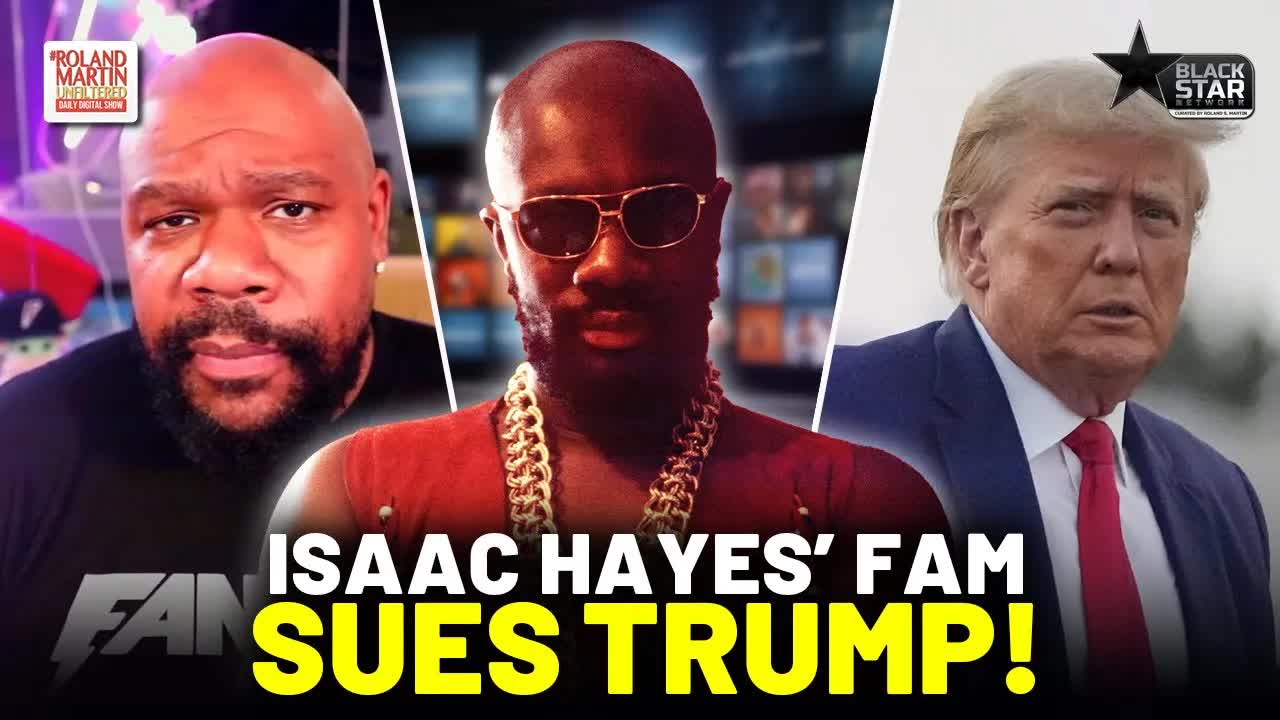A significant legal battle is brewing as the family of the late soul legend Isaac Hayes has filed a lawsuit against former President Donald Trump.
The lawsuit, initiated over the weekend, demands that Trump and his campaign cease using Hayes’ iconic song “Hold On, I’m Coming” during their rallies.
This legal action comes in light of claims that the song has been played at least 134 times during Trump’s campaign events, with the most recent occurrence taking place at a rally in Atlanta on August 3.
The lawsuit explicitly states that Trump did not obtain permission to use the track, which was originally penned for the R&B duo Sam and Dave.
The Hayes family is seeking a hefty sum of three million dollars in damages, asserting that Trump’s campaign has repeatedly violated copyright laws by utilizing the song without authorization.
Isaac Hayes III, the son of the legendary musician and founder of the Fan Base social media app, expressed his frustration regarding the situation.
He revealed that he had made multiple attempts to communicate with Trump’s team about the unauthorized use of his father’s music.
“I’ve posted about it on social media about four times, and we sent a cease and desist over a year ago,” Hayes stated, emphasizing that they have consistently asked the campaign to stop using the song.
Despite these efforts, Hayes’ attorney, James Walker, confirmed that Trump’s team has ignored their previous requests.
“They completely disregarded our cease and desist,” Walker remarked, highlighting the family’s determination to enforce their rights now that the copyright has reverted back to them.
In a broader context, this case underscores the complexities of music licensing, particularly during political events.
Typically, organizations like ASCAP and BMI manage licenses for public performances of music.
However, the rules differ when it comes to political rallies, where artists often do not wish to be associated with specific candidates.
As a result, obtaining the necessary permissions becomes crucial.
This situation mirrors a recent incident involving pop superstar Celine Dion, who also took issue with her music being used at a Trump rally in Montana.
Dion’s management swiftly addressed the unauthorized use, illustrating a growing trend among artists asserting their rights against political campaigns.
Walker explained that while venues may secure licenses for music performances, additional permissions are required for political events.
He noted that unlike Kamala Harris, who sought permission from Beyoncé to use her song “Freedom,” Trump failed to follow the same protocol, leaving him vulnerable to legal repercussions.
The lawsuit aims not only for financial compensation but also seeks to hold accountable all venues and third-party organizations involved in the unauthorized use of Hayes’ music.
The Hayes family believes that the damages could extend beyond the stated amount, given the frequency of the song’s use.
As the legal proceedings unfold, the Hayes family is prepared to take further action, including issuing takedown notices to platforms like YouTube if the unauthorized videos continue to circulate.
They are determined to protect Isaac Hayes’ legacy and ensure that his music is not associated with a political figure whose values they do not support.
Hayes III elaborated on the significance of this fight, stating that it’s not merely about the money but about preserving his father’s reputation.
“I don’t want anyone to think of Donald Trump when they hear ‘Hold On, I’m Coming,'” he emphasized, underscoring the importance of separating his father’s artistic legacy from Trump’s controversial persona.
The lawsuit serves as a reminder of the ongoing tensions between artists and political figures, particularly as many musicians have publicly distanced themselves from Trump’s campaign in the past.
The Rolling Stones and Tom Petty, among others, have voiced their disapproval of their music being used to promote Trump’s agenda.
In an era where music licensing is crucial for both artists and political campaigns, this legal dispute highlights the need for clear communication and respect for artists’ rights.
The outcome of this case could set important precedents for how music is used in political contexts moving forward, reminding everyone that artists deserve control over their work and its association with political ideologies.































